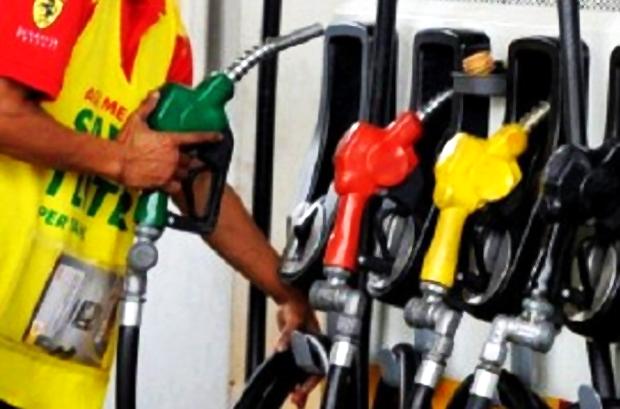
Fuel pumps stock photo
Pump prices of petroleum products are expected to continue rising as geopolitical tension caused by the Russia-Ukraine crisis took a turn for the worse.
Lawmakers have urged President Duterte to call a special session of Congress to pass the bill suspending the excise on oil to ease the impact of high prices on motorists and consumers.
While legislators are on break due to the campaign period and won’t resume session until May 23, the Constitution empowers the President to convene Congress any time during its adjournment.
As of last Monday, the net cumulative increase in fuel prices so far this year has reached P10.85 a liter for diesel, P8.75 for gasoline and P9.55 for kerosene.
Prices of the global benchmark Brent crude oil on Thursday soared past $100 a barrel for the first time in more than seven years on Thursday after Russian President Vladimir Putin announced a “military operation” in Ukraine.
Brent crude futures surged to $102 following Putin’s announcement.
The immediate impact of worsening geopolitical tension between Russia and Ukraine is to further raise pump prices of petroleum products in the Philippines. Latest data from the Department of Energy showed that the country imports 77.4 percent of its gasoline, 80 percent of its diesel and 84 percent of its kerosene needs.
Nicholas Mapa, senior economist at ING Philippines, said the continued rise in prices in the global oil market would likely drive the country’s inflation this month to “north of 3.2 percent,” although still within the central bank’s forecast range of 2-4 percent for the year.
High transport, power cost
The Bangko Sentral ng Pilipinas (BSP) earlier pointed out in a monetary policy report that the ultimate tipping point was if Dubai crude futures hit $110 a barrel. As of Thursday, Dubai crude, the guide used by the Philippines, was at $91.84 a barrel.
Mapa stressed that rising prices would “crimp household spending and likely prompt earlier and more aggressive (interest rate hikes) from BSP, which in turn will snuff off the nascent recovery of bank lending. Transport and utility costs will likely rise.”
Steve Dailisan, spokesperson for AirAsia Philippines, said the rising cost of jet fuel “is a concern for all airline companies.”
For now, Dailisan said AirAsia was looking to implement strategies that could avoid the need to raise airplane fares, although it was possible for airlines to share the burden with their customers through the implementation of a fuel surcharge cost.
Pambansang Mamamalakaya ng Pilipinas told the Inquirer that the latest increase in global oil prices should move the government to fast-track the distribution of fuel subsidies to marginalized sectors deeply affected by the series of price increases.
“We have to act fast to provide relief to our people in the wake of soaring gas prices, which have now increased by more than P20 per liter due to the COVID-19 pandemic and the heightening tensions between Russia and Ukraine and its western allies,” Anakalusugan Rep. Michael Defensor said in a statement on Thursday.
On Wednesday, House Deputy Minority Leader and Bayan Muna Rep. Carlos Isagani Zarate also called on President Duterte to call for a special session of Congress to approve the suspension of the tax on oil for at least six months. 1-Pacman Rep. Mikee Romero also made the same call to the President.
In November last year, the House committee on ways and means passed the consolidated bill that would suspend the excise on petroleum products for six months. However, the lower chamber has not approved the bill.
Inflationary pressure
Global oil prices have surged more than $20 a barrel since the start of 2022 on fears that the United States and Europe would impose sanctions on Russia’s energy sector, disrupting supplies.
Russia is the world’s second-largest oil producer, mainly selling its crude to European refineries, and is the biggest supplier of natural gas to Europe, providing about 35 percent of the latter’s supply.
“This growing uncertainty during a time when the oil market is already tight does leave it vulnerable, and so prices are likely to remain volatile and elevated,” said Warren Patterson, head of ING’s commodity research.
Western nations and Japan on Tuesday punished Russia with new sanctions for ordering troops into separatist regions of eastern Ukraine, and threatened to go further if Moscow launched an all-out invasion of its neighbor. So far, there are no sanctions on energy trade.
“It’s not just geopolitical risk that is the problem but the further straining of supply,” OCBC economist Howie Lee said.
“Russian oil supply will disappear overnight if faced with sanctions … and Opec (Organization of the Petroleum Exporting Countries) can’t produce fast enough to cover this gaping hole.”
Analysts are also warning of inflationary pressure on the global economy from $100 oil, especially for Asia, which imports most of its energy needs. —With a report from Reuters

